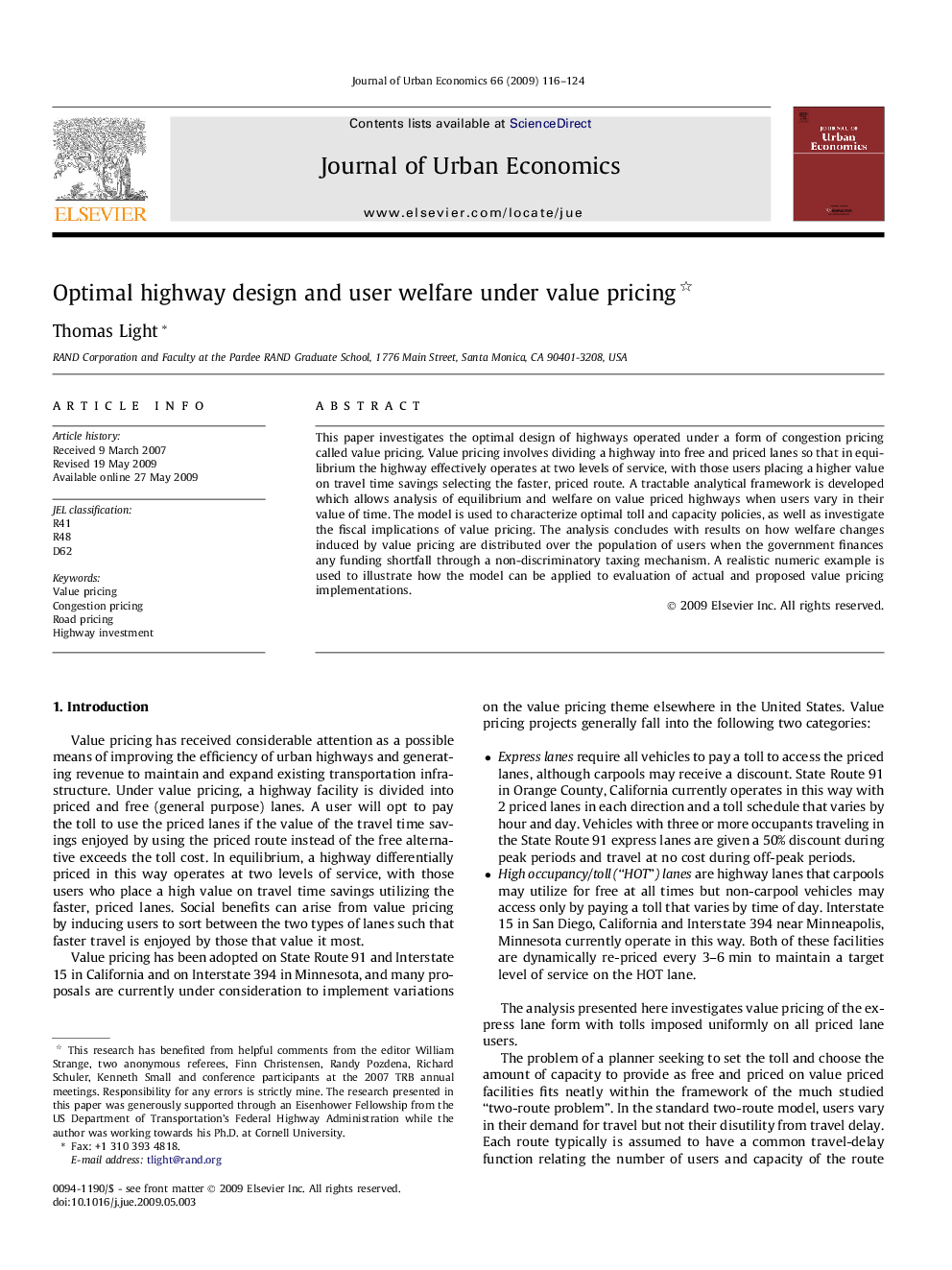| Article ID | Journal | Published Year | Pages | File Type |
|---|---|---|---|---|
| 971560 | Journal of Urban Economics | 2009 | 9 Pages |
This paper investigates the optimal design of highways operated under a form of congestion pricing called value pricing. Value pricing involves dividing a highway into free and priced lanes so that in equilibrium the highway effectively operates at two levels of service, with those users placing a higher value on travel time savings selecting the faster, priced route. A tractable analytical framework is developed which allows analysis of equilibrium and welfare on value priced highways when users vary in their value of time. The model is used to characterize optimal toll and capacity policies, as well as investigate the fiscal implications of value pricing. The analysis concludes with results on how welfare changes induced by value pricing are distributed over the population of users when the government finances any funding shortfall through a non-discriminatory taxing mechanism. A realistic numeric example is used to illustrate how the model can be applied to evaluation of actual and proposed value pricing implementations.
